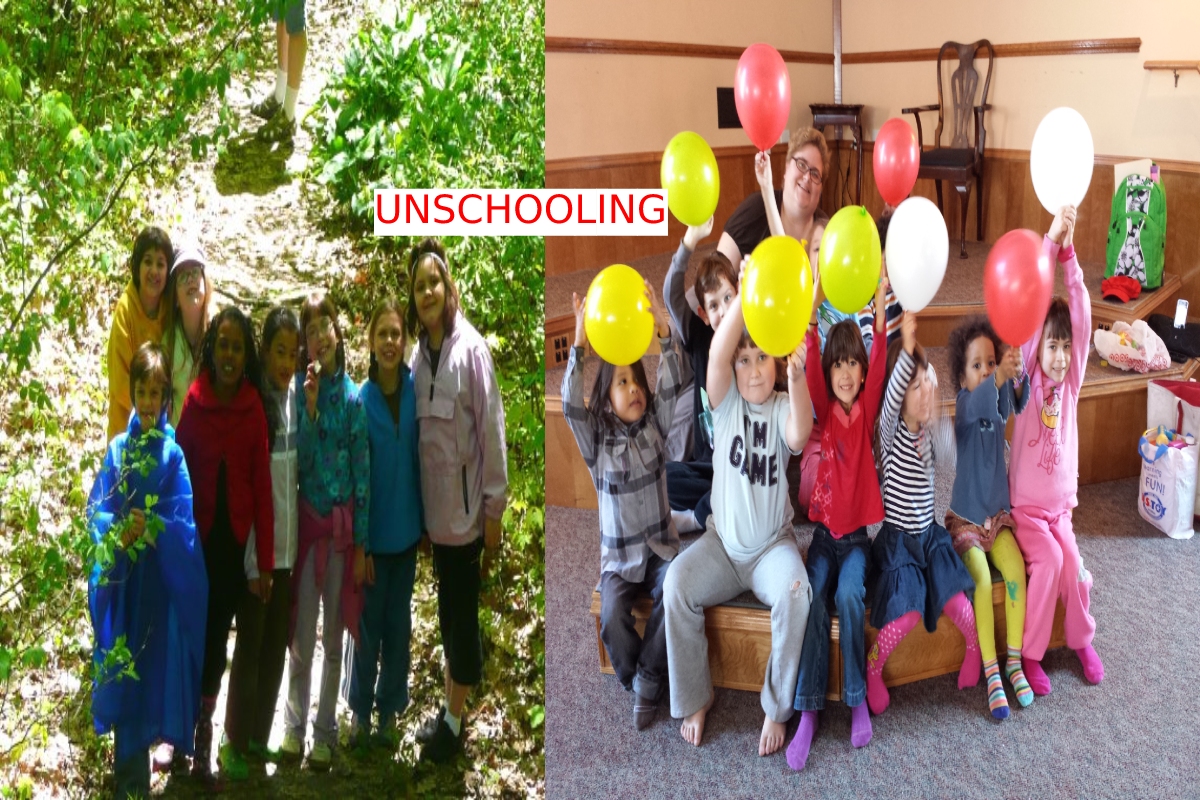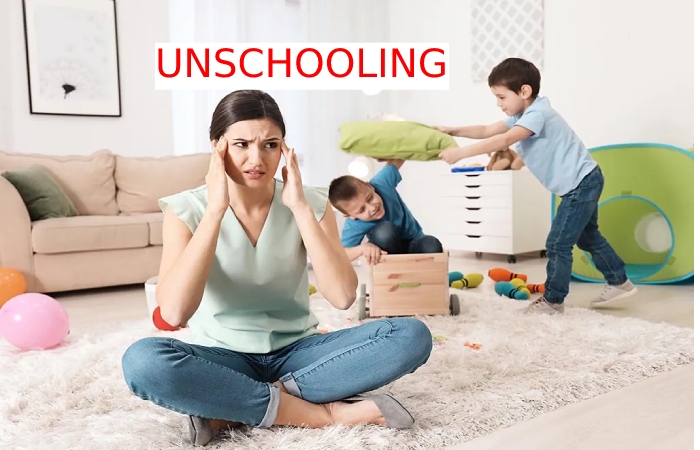Table of Contents
Unschooling – Explanation
Unschooling the case for home-schooling, For the past three years, our family has been on a trip to reimagine the way we do “school,” a choice exploded by our independent and headstrong son, who was in third evaluation at the while.
Each day, He came Home Demanding to be Home-Schooled
At the time, we had a newer child who wasn’t yet in school and an older familial who was required to stay in his public school. He told us that at school, he touched uninterested, and his project-based honours program was discontinued due to the lack of staff — one of many contests at his under-resourced public school. It was becoming increasingly clear that his desire for independence and space to explore the things he was interested in wasn’t possible in the traditional public-school classroom. Eventually, we agreed to pull him out of his public school and began our journey.
Unschooling is a broad term that includes a range of labels, descriptions, and practices exclusive toward each person or family. At its core, it’s the chance — and frequently for new un schoolers, the challenge — for children to explore their interests rather than adhere to the criteria and curricula predetermined by school boards or other entities.
Use Time4Learning with an Unschooling Approach
Unlike the traditional home-school model that often seeks to mimic the classroom or follow a defined curriculum usually with parents acting as teachers, children take the lead in unschooling. Adults, sometimes parents, typically offer support, assistance, and guidance when needed.
It’s 10 am, and my three school-age children are spread out about the house. One is on his laptop, headphones on, eyes focused intently on his screen. One has transformed our dining room table into his makeshift STEM studio, complete with Legos, popsicle sticks, food colouring, and other unrelated things. And the last one is on his tablet listening to an audiobook while he follows along with his physical copy. It might technically be summer, but this is what life often looks like for us year-round. No, we don’t home-school — in our household, several of our kids are unschooled.
Choose and Uses of Unschooling
For those who choose to home school under specific options available to them in their home state, such as Florida umbrella schools or church schools in Alabama, you will want to research which ones are willing to work with schoolers. These schools can often even offer advice for unschooling families on state reporting and recordkeeping.
Parents home-schooling in Ohio, Michigan, and other states have set requirements for subjects taught within their home school. Even though schoolers don’t necessarily group what they are learning into traditional topics, the likelihood is that as you follow your child’s natural interests, you will touch on most or all of them.
If you are looking for it, subject-centred learning is “hiding” in almost every area of your unschooling pursuits. For example, volunteering at an animal shelter gives suggestions for chances to learn about anything from canine biology to U.S. government and civics. Watching the Clatter of the Titans together surely counts as past, and structure Lego constructions mix many aspects of math.
Allowing kids to Shape Their Teaching
It can be cooperative to think of unschooling non as an instructive method but as the attitude that learning is a natural process constantly taking place. The term arose in the ’70s, promoted by author and educator John Holt.
After working as a teacher in an unadventurous setting for several years, Holt realized the encouraging factor for many of his students wasn’t a love of learning but a fear of disappointment and criticism.
He noted an apparent difference between the natural originality in preschool-age children and the lack of excitement and interest in primary school students and beyond. Over his lifetime, his writings on unschooling encouraged many to re-examine the state of America’s public schools and our rigid expectations of children.
Today, unschooling is practised \by people worldwide for all sorts of explanations, even within their own families. For us, it’s an opportunity to release opportunities and detect what knowledge looks like naturally for our youngest son, age 7.
For our central child, age 11, the driver is individuality
the ability to select which schemes to pursue, books to read, and even languages to study. And for our eldest, 15, who was attending traditional school before the pandemic, our decision to unschooled this coming fall will allow him space to dive deep into the subjects he’s most passionate about.
Unschooling as a Working Parent Can Afford extra autonomy
Will my toddler learn anything if we let them do what they want? Will they fall behind their peers? And what happens in the following years when they might want to return to school? These are all inquiries I’ve had myself and occasionally still reason around.
Here’s what I know for sure:
If you look for education, you’ll find it. In practice, learning happens all the time, even if it isn’t packed up and obtainable just right. For example, my son mastered parts simply by following his natural interest in cooking, where he learned early on how to double or halve elements when making his favourite brownies.
For working parents, any kind of home-schooling isn’t easy, but unschooling gives a different sort of freedom.
Think About It This Way
With a defined curriculum, your role is a teacher. With self-directed knowledge, that shifts to a more supportive role, or as we’ve liked to view it, a sort of partnership. Children take the lead. Explore subjects that attention them, play and read. Your support with help, help connect ideas, or introduce new material that builds on those topics.
On the days where more provision, structure, or arrange interactions need especially for younger children who may need more assistance. There are stages like Out school, which offers countless live online classes with teachers and other students.
Self-directed centres like Natural Creativity continue to offer virtual public and weekly afternoon activities.. There are also co-ops where parentages rotate during the week to lead a lesson or activity for a group of children — virtually or socially distanced, of course.
A current favourite is Storybook STEM class, an hour each day that occupies a busy first-grader with a story and science, technology, engineering, or math project.
To Start Unschooling
When you are ready to move from travelling unschooling to embracing the approach, you can begin by:
Studying your state’s home-school laws to see how unschooling fits in with your state regulations
Research what unschooling looks like for many families to help define your approach. Please talk with your children/teens about unschooling and your goals for their education. Choose if you will integrate any formal prospectuses into your unschooling method. Enjoy the liberty of letting your child take the lead in their education!
Is Unschooling Legal
Unschooling is a form of home-schooling, and home-schooling is legal in all 50 states. And though there are no official “unschooling laws,” the laws that control how you home-school in each state can affect the way you approach—or at least report—your home-schooling progress.
For parents home-schooling in New York and Pennsylvania. Recordkeeping that shows what each child is learning requires. Your home-school portfolio should include many samples of projects your homeschooler has worked on and pictures of them actively participating in their educational pursuits.
Keep detailed logs of home-school trips you take, volunteer projects you embark on, books you read, and activities you participate in.
Conclusion
Unschooling families sometimes want a structured syllabus for one or more subjects. Parents who appreciate a consecutive approach to arithmetic, for instance, like that Time4Learning offers well-ordered lessons and tracks students’. Progress in each study with communicating activities, optional worksheets, and valuations.
Parents like that it tracks growth and helps children advance by clearly giving and reinforcing each lesson. This helps with portfolio recordkeeping.
Also Read: Foods Techniques -Definition, Method, Classification, And More


